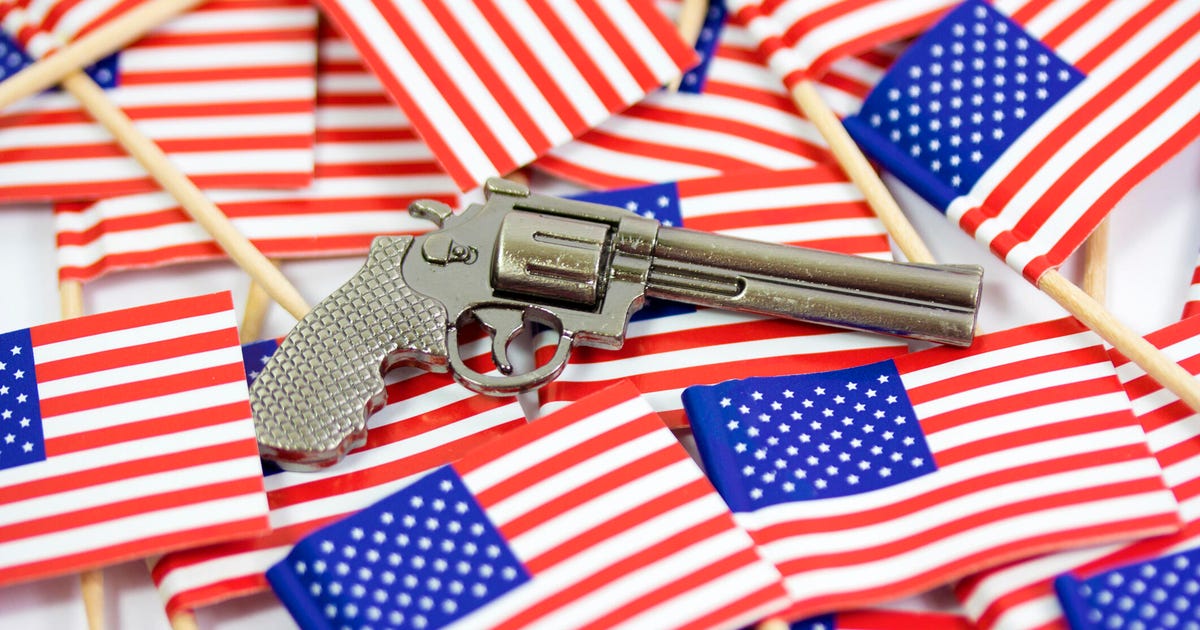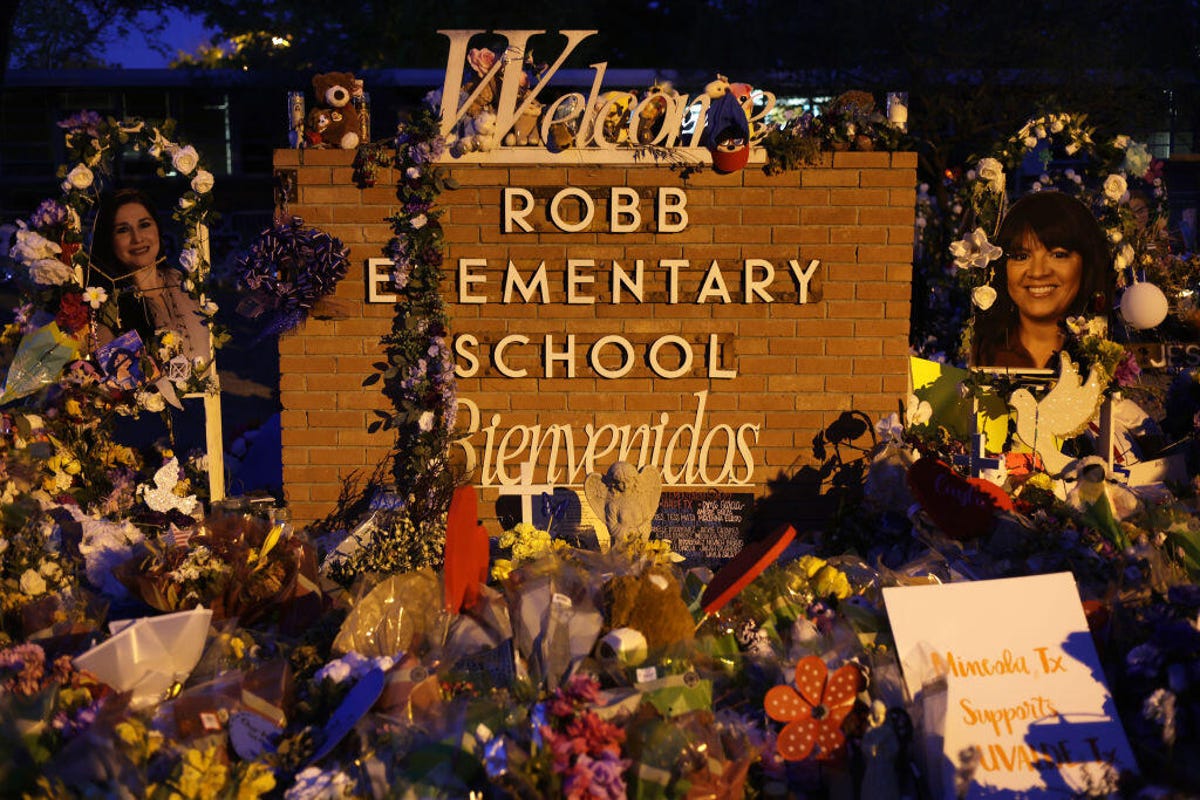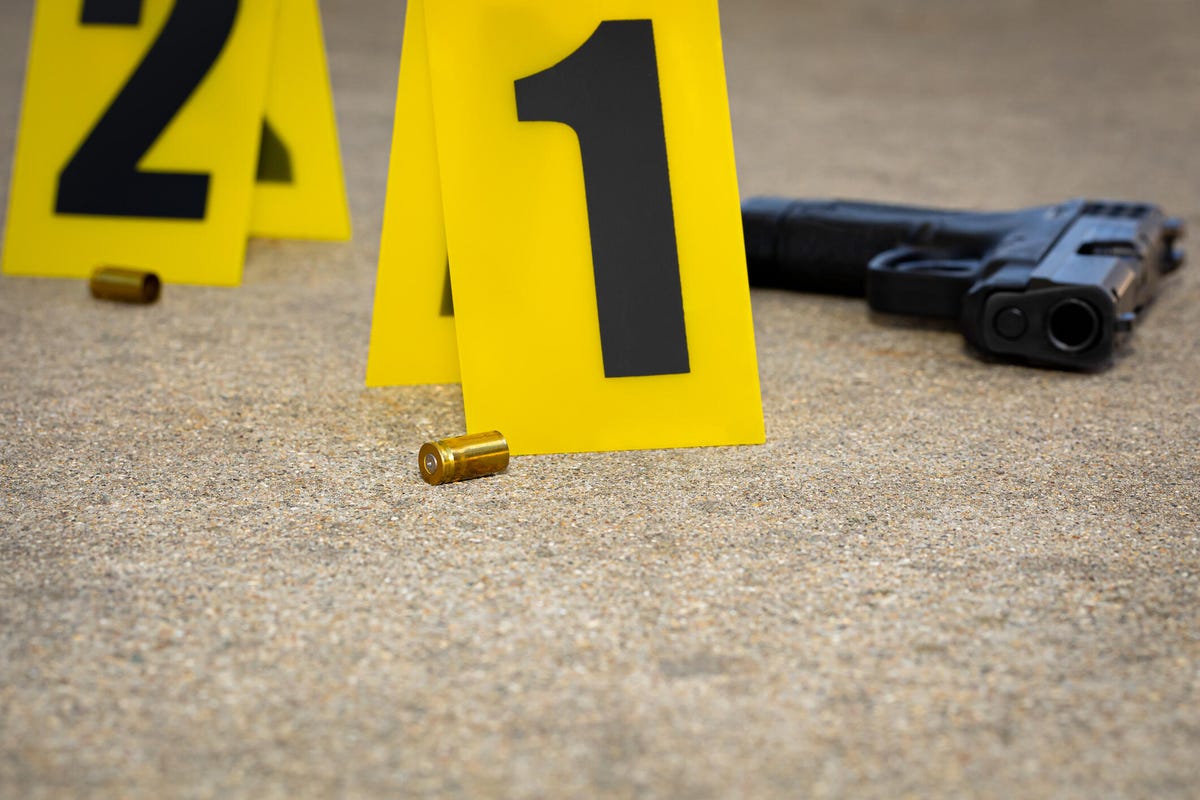States with red flag gun laws what are red flag laws on gun control trump red flag gun laws red flag laws by state are red flag laws constitutional what are red flag laws texas what are red flag weather warnings what are red flags what are red pandas what are soft skills what are integers

What Are Red Flag Laws, the Gun Control Measure Uniting Republicans and Democrats?
What's happening
Democrats and Republicans alike are calling for so-called red flag laws that would allow law enforcement to seize firearms from at-risk individuals.
Why it matters
There have been more than 230 mass shootings in 2022 so far, including recent assaults in Tulsa, Buffalo and Uvalde, Texas.
What's next
House Democrats are introducing a raft of gun control bills and hope to pass substantive legislation in early June.
Major Texas Republican donors took out a full-page ad in the Dallas Morning News on Sunday, calling on lawmakers to pass gun control regulations, including so-called red flag laws, less than two weeks after the deadly mass shooting at an elementary school in Uvalde, Texas.
Over 250 self-declared "gun enthusiasts" -- including contributors to Republican Gov. Greg Abbott's election campaigns -- signed an open letter supporting bipartisan gun reform legislation.
Red flag laws, officially known as extreme risk protection orders, allow law enforcement to seize firearms from those deemed a risk to themselves or others. Such measures have already been passed in 19 states, including Republican strongholds like Indiana and Florida.
While GOP leadership has traditionally been against gun regulation, the deadly mass shootings in Uvalde, Buffalo and Tulsa since mid-May have led to rare bipartisan support in Congress and statehouses across the US. On Saturday, a brawl on Philadelphia's South Street turned deadly as at least two men opened fire, killing three people and injuring 12 more.
In a June 2 address, President Joe Biden called for federal red flag laws "so that a parent, a teacher, a counselor can flag for a court that a child, a student, a patient is exhibiting violent tendencies, threatening classmates or experiencing suicidal thoughts."
Here's what you need to know about red flag laws, including how they work, where they exist and whether such legislation could be passed by Congress
What are red flag laws?
Red flag laws allow extreme risk protection orders, or ERPOs, to be issued to temporarily stop high-risk individuals from keeping, buying or selling guns, according to the Seattle Police Department, "when there is demonstrated evidence that the person poses a significant danger" to themselves or others.
While specifics vary from state to state, the orders also often prevent a person from obtaining a concealed weapon license and require them to surrender their permit if they have one.
Factors that can trigger an order include violent behavior or self-harm, substance abuse and a "dangerous mental health crisis," according to Seattle police.
Where have red flag laws been enacted?
To date, 19 states and the District of Columbia have mechanisms to issue extreme risk protection orders on the books: California, Colorado, Connecticut, Delaware, Florida, Hawaii, Illinois, Indiana, Maryland, Massachusetts, Nevada, New Jersey, New Mexico, New York, Oregon, Rhode Island, Vermont, Virginia and Washington.

A makeshift memorial at Robb Elementary School in Uvalde, Texas, where 19 students and two teachers were killed on May 24 after an 18-year-old opened fire inside the school.
Alex Wong/Getty ImagesMaine's "yellow flag" law is unique in that it requires approval from both a judge and a medical care provider before firearms can be seized.
More than half of all red flag laws were passed after the deadly 2018 attack on Parkland, Florida's Marjory Stoneman Douglas High School, where a former student used a semi-automatic rifle to kill 17 people and injure 17 others.
In May 2020, Oklahoma became the first state to pass legislation specifically prohibiting any jurisdiction from enacting red flag laws.
Who can request an extreme risk protection order?
Most red flag laws only allow family members, household members or police to petition the court to seize someone's firearms, but a few let school officials, medical professionals and even employers and co-workers make the request.
Are red flag laws successful?
Because red flag laws are a recent gun control measure -- and mass shootings are still relatively rare compared to other forms of gun violence -- solid data is hard to come by. According to Everytown for Gun Safety, though, red flag laws "are a proven way to intervene before an incident of gun violence."
"Extreme Risk laws give key community members a way to intervene before these warning signs escalate into tragedies without going through the criminal court system," the gun regulation nonprofit said in a statement on its website.
At least 16,857 ERPOs were filed between 1999 and 2021, 90% after the 2018 Parkland shooting.
According to Everytown, in California, gun violence restraining orders (the state's version of an ERPO) have averted several mass shootings -- including an incident where an employee at a car dealership threatened to shoot his supervisor and other employees if he was fired.
After his manager informed law enforcement and a GVRO was obtained, five firearms were seized.
Everytown also reports that temporarily removing guns from people in crisis significantly reduces the risk of firearm suicide, which results in the deaths of at least 24,000 Americans each year.

Nineteen states and Washington, DC, have red flag laws allowing law enforcement to temporarily confiscate firearms from someone deemed a danger to themselves or others.
JJ Gouin/Getty ImagesMost guns used in mass shootings are purchased legally -- in stores, at gun shows and online -- making tracking and intervention with ERPOs easier. And the deadliest mass shootings are carried out by young men under 25, who may still be living at home with family members who can petition for an order.
Still, some state law enforcement officials have expressedreluctance to enforce the orders. Colorado Sheriff Steve Reams told CNN in 2019 that he'd rather go to jail than enforce a red flag law.
And even if police do enforce an order, a judge will only issue one for a specific timeframe.
Could Congress pass a red flag law?
While no federal red flag law has cleared both chambers on Congress, leaders in both parties have signaled support for such a measure. In August 2019, after back-to-back shootings in Dayton, Ohio, and El Paso, Texas, that killed 31 people, then-President Donald Trump said laws should be passed to ensure individuals "judged a grave risk to public safety do not have access to firearms."
That same year, Republican Sen. Lyndsey Graham of South Carolina and Democratic Sen. Richard Blumenthal of Connecticut indicated they were working on a measure to provide funds to states that pass red flag laws.
The bill was never introduced, however.
On June 2, House Democrats held a special session of the Judiciary Committee to mark up the Protecting Our Kids Act, a package of measures intended to stem gun violence. And Democratic Sen. Chris Murphy of Connecticut told The Wall Street Journal he was discussing a red flag bill with Senate Republicans, including Sens. John Cornyn of Texas and Susan Collins of Maine.
Whether those talks lead to substantive legislation, though, is questionable.
"Several different times we've had conversations among members and at markups about the desirability and the relevance" of red flag laws, Sen. Chris Coons, a Democrat from Delaware, told Axios. "That should be enactable, but in the several years since, despite repeated efforts ... we haven't been able to get to 10 on that."
What is the opposition to red flag laws?
House Minority Whip Steve Scalise, a Republican from Louisiana, called the measures "unconstitutional."
"They literally come into your house and take away your gun without you even knowing that there was some kind of proceeding where somebody said, 'Oh, I think that gun might be a threat,'" Scalise told Fox News' John Roberts. "Maybe somebody thought taking away a gun from a 19-year-old is going to solve a problem. It happens to be unconstitutional."
The National Rifle Association has also expressed concerns about red flag laws, saying they could interfere with an individual's right to due process.
Source
Blog Archive
-
▼
2022
(148)
-
▼
September
(41)
- AT&T Adjusts Top Plan, Removes Unlimited Elite And...
- 1-Day Refurb IPhone And Apple Watch Discounts To S...
- New Emoji Candidates Up For Approval Soon: Jellyfi...
- Best Apps To Put On Kids' Phones To Keep Them Safe...
- Skip Meat Once A Week To Reduce Your Grocery Bill ...
- Twitter's Jack Dorsey Steps Down As CEO
- 1-Day Best Buy Deal Knocks $200 Off The Microsoft ...
- Star Wars Celebration 2022: Best Products You Can ...
- Maserati Project24 Is A Track-Only MC20 With 740 HP
- Discord Fans: Say Bye To That 'Android Support Com...
- WWE Clash Of Champions 2020: Results, Full Recap A...
- Air Fryers As Low As $29 During Best Buy's Online ...
- Apple Watch Series 5 Vs. Fitbit Versa 2: Best Smar...
- Razr Returns: Motorola Re-re-releases The Iconic F...
- 3 Hidden IPhone SE Home Button Features You Didn't...
- Oppo Find X5 Pro: Five Reasons This Flagship Andro...
- Control Your Google Smart Home With These Easy Tip...
- Netflix Considers Livestreaming
- Facebook Is Shutting Down Its Facial Recognition S...
- Facebook Adds Tools To Combat Misinformation In Gr...
- Meet Tom, The Spider-Man Stunt Robot
- IOS 16 Lets You Customize Your IPhone Lock Screen ...
- Meet The New Dune Buggy And Imagine You're Steve M...
- Apps In Google Play Store That Stole Banking Login...
- Motorola One Action Is A Phone With A GoPro-like C...
- Scott Hall, Pro Wrestler Known As Razor Ramon, Die...
- Huawei Mate 20 Pro Review: An Elite Smartphone Wit...
- Google Earnings Miss Expectations Amid Tech Indust...
- Pokemon Go Events For June 2022: Deino Community D...
- WWE Raw Results For Aug. 1: Full Recap, Becky Lync...
- RedMagic 7S Pro's Highlight Feature May Be Its Hid...
- Current Refinance Rates: Compare Today's Rates
- 12 Dynamic Gifts For 2-Year-Old Kids
- 10 Road Trip Essentials For Summer Travel
- Japan's AI-powered CCTV Cameras Catch Shoplifters ...
- What Are Red Flag Laws, The Gun Control Measure Un...
- Best Coffee Accessories For 2022
- Pokemon Go Fest 2022: Shaymin, Ticketed Features A...
- Intel's Profit Plunges As We Stop Buying All Those...
- Lenovo IdeaPad Yoga 2 Pro Review: A Better-than-HD...
- 8 Exercises You Should Be Doing, According To Pers...
-
▼
September
(41)
Total Pageviews
Search This Blog
Popular Posts
-
Elden ring player guide elden ring new player tips playing elden ring early elden ring the elden ring elden ring story guide elden ring full...
-
Whole house clean with me clean up your house how to clean your whole house how to clean the whole house cleaning the whole house help me cl...
-
Oppo find x3 pro 5 reasons i love oppo find x3 pro 5 reasons i love oppo find x3 pro 5 reasons we stand oppo find x3 pro 5g ราคา oppo find x...
